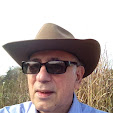In an earlier article, I recounted my dad's passion for playing different sports in college: baseball, basketball and field and track.
Today, I remember his passion for caring for his patients (which led, incidentally, to his building one of the largest practices in the Bronx.)
His dedication to the sick was reflected in several ways. First he made house calls, going up and down flights of stairs. I should know as I would often accompany him-- carrying his doctor's bag. (at the time, he would charge $5 per house visit.) And he spent time getting to know each of his patients--patiently listening to all their complaints.
Well the word go around very quickly along the Grand Concourse and the East Tremont section of the Bronx about the doctor who makes house visits. Naturally, when the patients recovered, they flocked to his office at the Flat Iron Building located at 1882 Grand Concourse.
Here it was not unusual for up to 40 patients to be waiting for a consult. I would ask dad why they didn't make appointments. His answer was: I would urge them to schedule appointments, but they simply come and who can stop them? Half would find seats in the waiting room and others would stand.
They did not mind waiting, sometimes up to two hours. Why?
For starters, he would emerge frequently from his private consultations and pop-in to the waiting room and hallway and greet each patient personally while they waited.
Dad had a special caring, empathetic, bedside manner that was infectious. He took time to hear their complaints, speak to them in Yiddish, German, or English. He did much to alleviate their worries and anxieties that often led to ulcerative colitis, his specialty.
Dad, I am so grateful to have experienced the importance of taking the time to listen to each patient's story before making a diagnosis- a luxury rarely heard of in the practice of today's medicine.
You have inspired me to write a series of articles to examine the current crisis.
Subscribe to:
Post Comments (Atom)



No comments:
Post a Comment